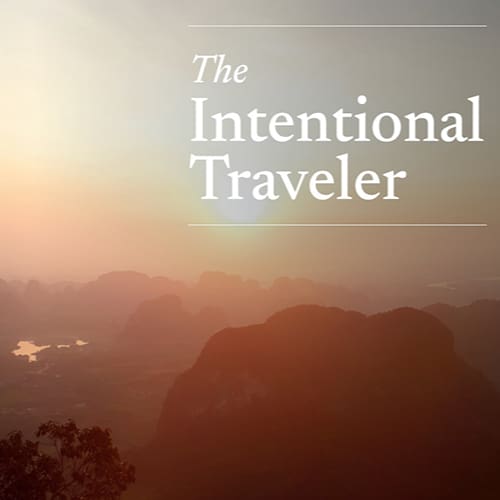According to a recent study by the Luxury Group by Marriott International, high-net-worth (HNW) travelers in Asia Pacific are recalibrating how, where, and why they travel. They prioritize wellbeing, immersive experiences, emotional value, and intentional design over volume and extravagance. According to a new study from the Luxury Group by Marriott International, high-net-worth (HNW) travelers in the region are recalibrating how, where, and why they travel – prioritizing wellbeing, immersive experiences, emotional value, and intentional design over volume and extravagance.
The latest survey report 1 750 Asia Pacific’s wealthiest travelers Australia, Singapore, India Indonesia, South Korea Japan and Thailand revealed a luxury mindset characterized by increased cultural engagement, greater precision in itinerary planning and rising expectations for brands and experiences.
Luxury travelers are more deliberate than ever. Oriol Montel, Regional Vice president, Luxury, Asia Pacific excluding China Marriott International. “They seek journeys that are aligned with their values, improve wellbeing and provide deep personal meaning.” Marriott International has an opportunity here to evolve luxury into something more transformational. It can be curated and emotionally resonant.
The Wellness Center Stage
Luxury travel has become synonymous with wellbeing. In 2025, 90 percent of travelers plan to use wellness experiences in their bookings, up from 80 percent the previous year. Beyond traditional spa retreats, luxury travelers are embracing holistic wellness experiences – from forest immersions and nutrition programs to sound healing and sleep therapies. Asia is where travelers will be spending the majority of their wellness journeys, with 67% planning to go there. 26% are planning a spa or wellness retreat.
Spending More and Expecting More
Luxury travelers approach their trips with confidence and discernment. 72% of them plan to increase spending on high-end experiences in the next year. Travelers in Australia (85%), Indonesia (71%), and Singapore (80%), are the most likely to increase their spending on premium experiences. Family travel is the most popular type of travel, with 47% affluent travellers willing to spend more when traveling with their families.
Brand trust is also on the rise – recognized luxury hotel brands now rank higher than independent villas or private retreats, reflecting a desire for consistency, curated experiences, and elevated service.
A Return to Familiarity – Plus a New Luxury Trail
In the region, 93% of high net-worth travelers prefer to return back to destinations that they love. And 89% said they are more likely to visit places where they have an emotional connection. These aren’t just repeat trips – they’re purposeful returns, often planned to delve deeper into a destination, reconnect with local communities, or relive special moments with family and friends.
While many HNW travelers still favor their favorite destinations, new destinations with easy regional access are gaining traction. For 2025, Bangladesh (26%), New Zealand (24%) and Cambodia (23%) are rising to the top of the list, alongside other established favorites such as Australia and Japan.
The rise of the Intentional Itinerary
The luxury traveler of today is booking fewer but more in-depth trips. The average stay is now 4 nights instead of 3 and the itineraries have been meticulously planned often months in advanced. Bookings are made for longer trips 2-3 months in advanced, while short-term trips are booked 1-2 month in advance. 93% want a customized travel experience and 62% are planning every detail in advance.
Nature Travel is a Growing Travel Priority
Nature-driven experiences have now become a pillar in luxury travel. While gastronomy is still the leading driver, it has been overtaken by gastronomy. Countryside getaways are gaining momentum, with 28% of high-net-worth travelers planning rural escapes – up from 19% last year – while 30% are booking wildlife safaris. The overwhelming majority of 92% say that being in nature is their top priority when traveling, which reflects a growing interest in outdoor adventures. Further, they are avid planners. They book their long-term trips up to 9-12 months in advance.
Changes in Travel Dynamics: What We Travel with
New dynamics are emerging in the travel industry that is transforming traditional groups.
Guardian Trailsetters
In just one year, the number of solo parents traveling with children has increased from 15% to 24 %. They prefer itineraries which offer their children valuable experiences, such as religious events (41%), educational tours (38%), or safaris (both at 35%).
Impact Explorers
Gen Z travelers are gravitating toward destinations like Australia, Sri Lanka, and Thailand – choices that reflect their strong appetite for nature, culture, and adventure. This generation does not fit the stereotype of a leisure-seeker. They are driven by active, purposeful experiences. 47% are more interested in being near nature, while 45% want to see wildlife and 43% enjoy active sports holidays. Solo travel offers 31% the opportunity to gain independence and discover oneself, but small groups of less than five people are their preferred mode of exploration.
Venture Traveler
First introduced in 2024 New Luxe Landscapes According to a report, Venture Travelers is set to see significant growth by 2025. 86% of HNW travelers now say they explore business or investment opportunities while traveling – up from 69% the previous year.



